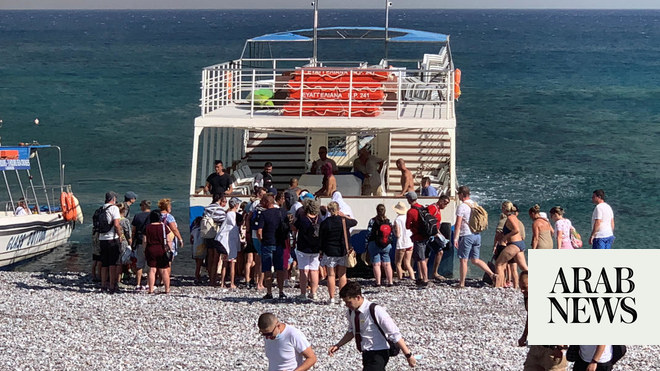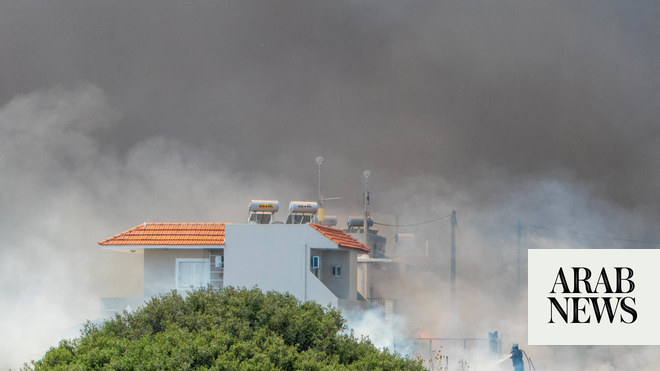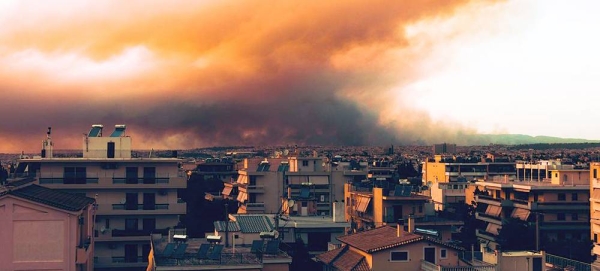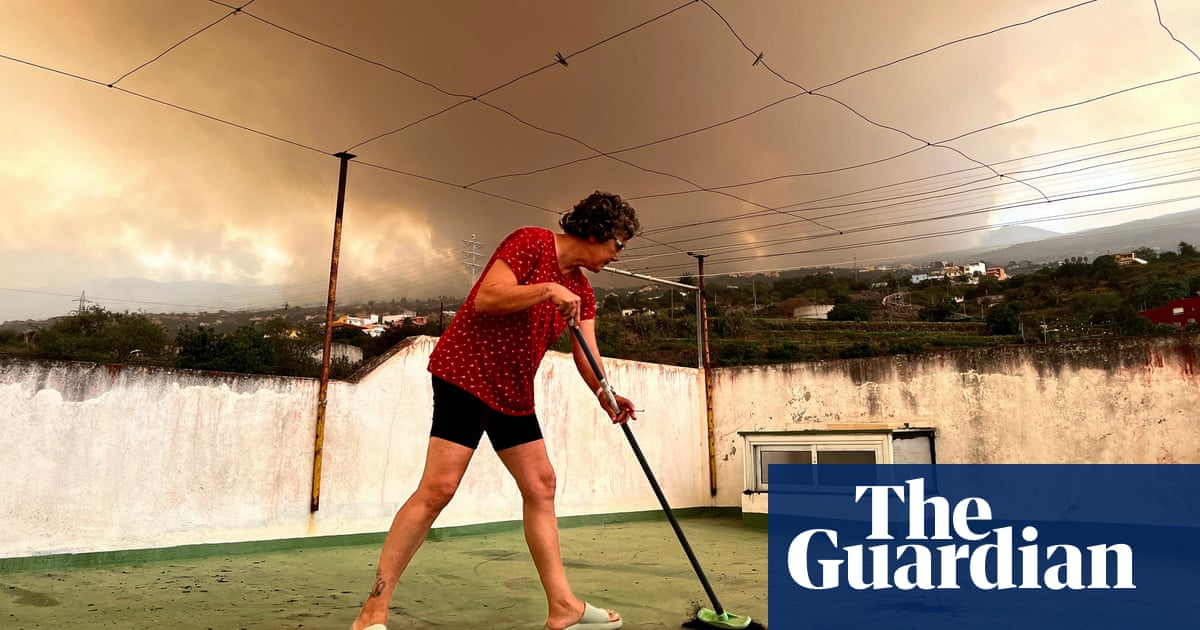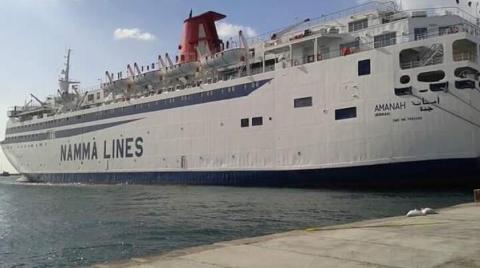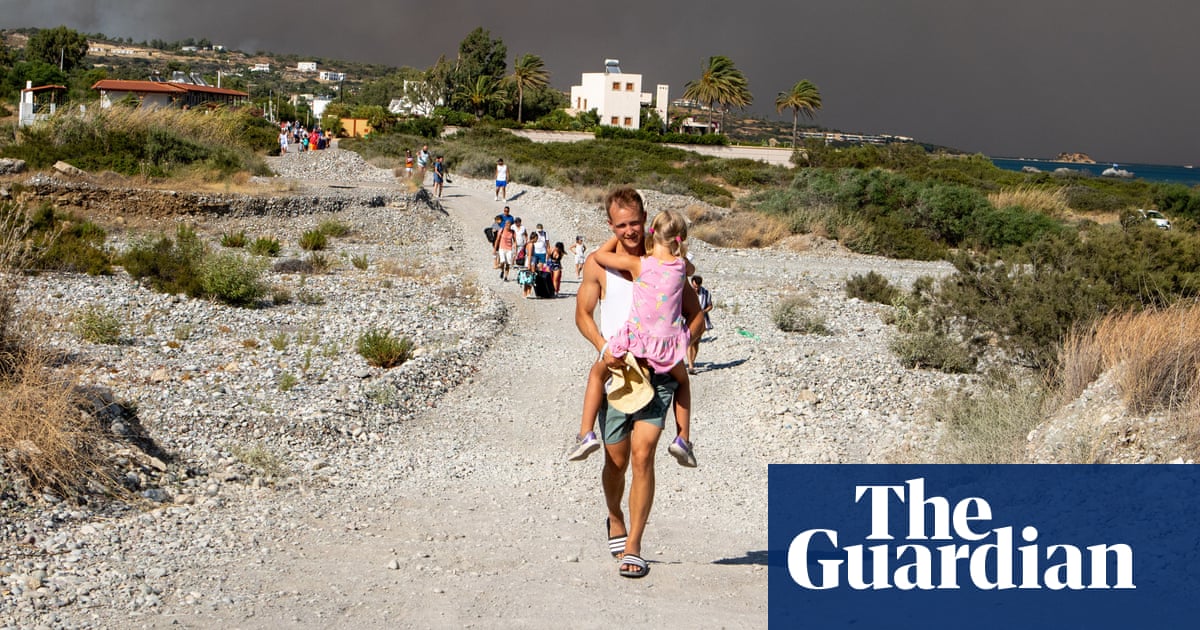
Greece has mounted its biggest evacuation ever, moving thousands of men, women and children from villages and resorts on Rhodes as wildfires fanned by high-speed winds raged for a sixth day.
The country’s fire department said 19,000 people – mostly tourists in hotels – had been moved as blazes continued to spread uncontrollably on three fronts across the Aegean island. About 16,000 were transferred by land, the rest by sea.
“It is the biggest operation to safely transport residents and tourists that has ever been carried out in our country,” said a Greek fire brigade spokesperson, Ioannis Artopios, on Sunday afternoon.
Greece’s economy is highly dependent on tourism – it accounts for 25% of GDP and one in five jobs – and authorities acted quickly to ensure that holidaymakers were moved out of harm’s way as the infernos ripped through pine forests on the island popular for its beaches and ancient ruins. The tourism minister, Olga Kefalogianni, is on her way to Rhodes.
On what was being called the hottest July weekend in 50 years in Greece, temperatures were predicted to reach 45C (113F). The hot, dry, windy conditions are perfect fuel for fires nationwide. Scores of blazes have broken out across Greece since the start of the heatwave, with new infernos on Evia, the country’s second biggest island, and in the Peloponnese on Sunday.
The battle to contain the fires has quickly become an international effort as firefighting forces from the Czech Republic, France and Turkey rushed to Rhodes. Paris and Ankara sent water-dumping planes to support 49 fire trucks and 266 firefighters.
From the moment the evacuation alert sounded early on Saturday afternoon, tourists headed for the beach, some pulling their suitcases behind them.
Footage broadcast by the Greek TV channel ERT showed a lone woman carrying her luggage through the smoke, looking disoriented. Firefighters were heard shouting at her: “Madam, your life! Come here. Leave everything behind!”
Cedric Guisset, a Belgian tourist who took shelter on Saturday, said he had to leave his hotel by foot and had nowhere to go.
“We told the hotel about the messages we had received on our phones to evacuate the area, but they didn’t even know about it,” he told the public radio station RTBF. “We really just took our identity cards, water and something to cover our faces and heads.”
Many had to leave their hotels when large flames reached the seaside villages of Kiotari, Gennadi, Pefki, Lindos, Lardos and Kalathos. Large groups of people gathered in the streets under a red and smoke-filled sky and waited to be taken to safety.
Tourists and some local people spent the night in gyms, school buildings, indoor stadiums and hotel conference centres on the island.
Juri Viesi, a hotel manager in Lardos, had to evacuate about 400 people from his hotel, mainly Italian, Czech and French people. He said: “Fortunately, no one here was hurt. The situation is very saddening, not just because of the tourism aspect, but because the island has burned. The area was very beautiful, very green, with many animals. I hate to think what has happened – it is black, reduced to ash. That is so sad. It’s not about losing one or two weeks’ tourism; it’s about the impact on people’s lives.”
The wildfire came within 20 metres of the hotel, but on Sunday it had been fought back several kilometres. Tourists were evacuated on buses at about 3pm on Saturday, but there was no space on the vehicles for large items of luggage, which were left at the hotel. Vietri and staff returned to the hotel on Sunday to try to get luggage to the evacuated customers. He had experience of hotel evacuations after a previous fire in Rhodes in 2008.
Artopios said so far nine people had been admitted to health centres with respiratory problems, along with a pregnant woman and a man who had fallen while being evacuated from a hotel. He said a help desk would be set up at Rhodes international airport by the Greek foreign ministry working in conjunction with diplomatic missions, including the British embassy, to help tourists who had lost travel documents. Rhodes has long been a popular destination for British tourists.
Thanasis Virinis, a vice-mayor of Rhodes, told Mega television on Sunday: “We have between 4,000 and 5,000 people now accommodated at different structures.” He called for donations of essentials such as mattresses and bedclothes.
Firefighters fought to extinguish a blaze that blackened the hillside and charred buildings near Lindos, one of the island’s most visited sites, which is famed for an acropolis perched on a large rock within medieval walls.
The fires reached the village of Laerma during the night, engulfing houses and a church, while many hotels were damaged by flames that had reached the coast.
On Sunday the blazes were burning on three active fronts, including on the south-east coast of the island, where firefighters tried to prevent the fire from crossing a creek. In the mountainous part of Rhodes, an active front of the fires, firefighters had been trying to stop a blaze from spreading to nearby dense forests.
Officials said the weather conditions risked making the firefighters’ task harder.
A fire department spokesperson, Vassilis Vathrakoyiannis, said: “The wind is expected to become more intense from 12 to 5pm, without excluding the possibility that could happen earlier.”
South-west of the resort of Kiotari – the main focus of Saturday’s evacuations – a trench was being dug to keep the fire from crossing a creek and threatening another seaside village, Gennadi.
Authorities have warned that the battle to contain the flames will take several days. The fires began at peak tourism season for Greece’s fourth largest island. Last year Rhodes, which has a population of more than 100,000, welcomed about 2.5 million tourists.
“It is an unprecedented situation for the island,” Panagiotis Dimelis, the head of the Archangelos village council, told Skai TV, adding that many locals had rushed to help the tourists.
A large part of the island was without electricity as the public power utility PPC shut down the local plant in the south for safety reasons.
“This is a special fire here because the heart of Rhodes and its environment is affected,” Efthymios Lekkas, a professor specialising in natural disasters, told ERT TV on Sunday, warning of a severe impact on the island’s tourist industry.
“I just did a drive from Lindos to Gennadi,” he said. “All the big hotels have closed. I don’t think they will be able to operate this year because the surrounding area in each unit has been completely destroyed, and the environment is not inspiring for a holiday.”




